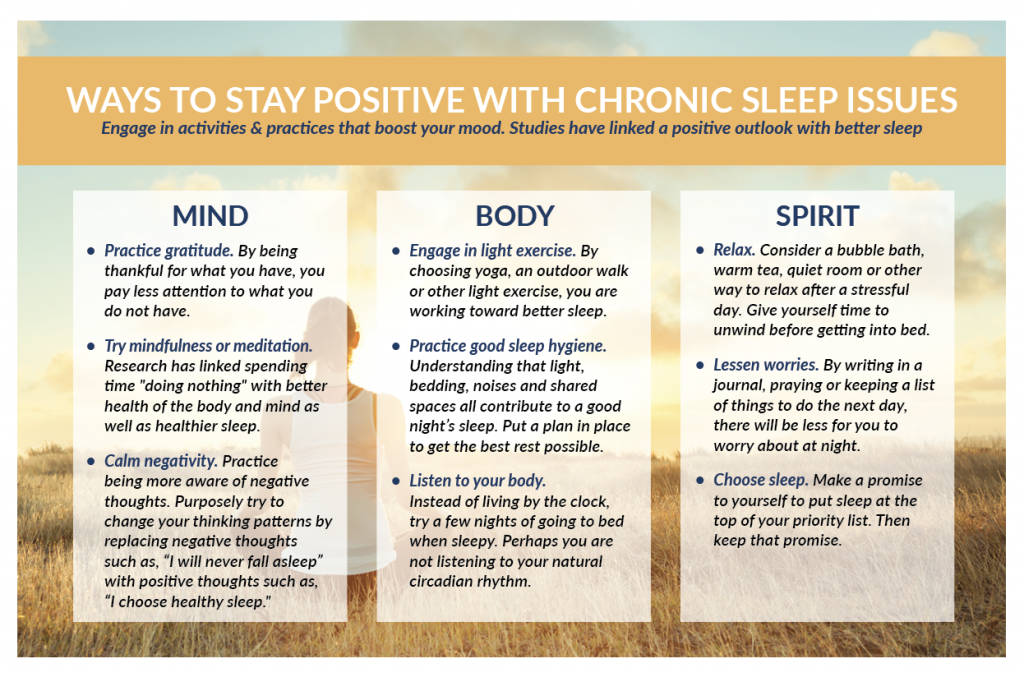Mindfulness is bringing your full attention and awareness to the present moment…then just watching each moment unfold without trying to control it.

Regular Mindfulness Benefits
Mindfulness is usually practiced during meditations, which can be a quiet meditation such as breathing meditations, a movement meditation such as yoga or walking meditation, or an informal meditation such as eating mindfully.
One of the biggest misconceptions is that mindfulness is another relaxation strategy in which people are able to “meditate themselves to sleep.” That is NOT the intention of mindfulness practices. Instead, these practices can help promote sleep health by developing a greater awareness of sleepiness and regulating cognitive arousals such as negative or racing thoughts. Ideally, formal mindfulness meditation practices are done during the daytime—not when you get in bed. In this way, regular mindfulness meditation can help improve the regulation of sleep by cultivating a greater awareness of when the mind and body are ready for sleep and when it might be more helpful to stay out of bed and do a soothing activity until your mind and body are ready.
The purpose of mindfulness is just to do the practice and see how each moment unfolds. It is not to use it for any particular purpose—whether it be for sleep, mental health or anything else.
Programs Available
There are many mindfulness programs that are taught in-person or online. The most popular program is mindfulness-based stress reduction (MBSR), which typically involves an 8-week class where participants are asked to practice the mindfulness meditations at home. In our lab, we have developed a version of this program tailored to people with insomnia called MBTI (mindfulness-based therapy for insomnia). There are other online programs and apps, such as Headspace or Calm, which are also good ways to become acquainted with mindfulness principles and meditations. These programs do a nice job of making mindfulness more “digestible” by leading participants through shorter 10-minute meditations.
Most people who ask me about this topic think I will tell them how to relax themselves to sleep using meditations. Even those who take mindfulness classes often comment that MBTI isn’t quite what they signed up for, and some do drop out. I would like people to understand that practicing mindfulness involves a commitment and takes time and patience. It is not intended to be a quick solution or something you use to make yourself feel better. This is quite contrary to how most of us in Western societies are trained, but this is exactly why it is so powerful. Mindfulness gets us back to the essence of how we are as human beings without being clouded by the constant need to achieve, strive and multitask.

Jason Ong, PhD is the Behavioral Sleep Medicine Director at Nox Health, as well as an Adjunct Associate Professor at the Center for Circadian and Sleep Medicine, Northwestern University Feinberg School of Medicine. Dr. Ong has been working in the field of sleep medicine & research for 17 years.


